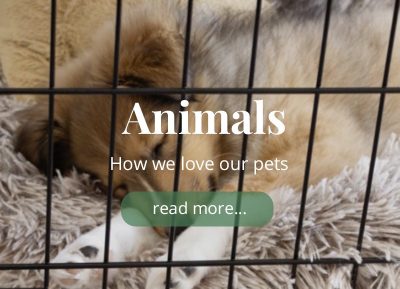Animals

We need to reassess our relationship to the whole animal kingdom and a good place to start is with those non-humans we claim to love the most.
The human love affair with dogs goes back possibly 20,000 to 30,000 years. The relationship has moved through a working relationship to one of being adopted as a totally dependent child. There are estimates that there are as many as 900 million dogs in the world (both strays and pets). Most people love their domestic pets and even consider them part of the family. There is however one big difference, they are all property. We own our pets.
Our trustee, Professor Gary L. Francione speaks very compellingly on this issue of ownership. Since we own our pets, we can do as we please with them. Depending on our emotional attachment they are expendable. We govern their lives and their deaths. During the recent covid lockdowns many animals were adopted and then put aside or put down when the novelty had worn off.
Increasingly we are responsible for their births. We do not simply want a little dog companion we want a particular breed, one that looks a particular way. We want canine arm candy. This has serious implications for the health of the dogs.
Ninety-nine percent of all vets believe there is an increase in complications with pregnancy with crossbreeding. This is driven because of the popularity of breeds such as Labradoodles. The females used in the dog breeding businesses are kept pregnant as much of the time as possible (like many farm animals). These overbred mothers suffer from complications that produce physical pain and emotional stress when their pups are taken away too soon. This shortens their lives. All for what? A photo opportunity?
The incidence of life-threatening health disorders is common in 42% of “purebred dogs”. [1] Purebred dogs were more likely to have 10 genetic disorders, including dilated cardiomyopathy, elbow dysplasia, cataracts, and hypothyroidism. [2] We need to reassess our relationship to the whole animal kingdom and a good place to start is with those non-humans we claim to love the most.
WHAT WE CAN DO
- Thousands of wonderful dog and cats wait daily for someone to give them a home. Some have faced abuse, all are grateful for a warm home, companionship (that’s right they need contact) and a friendly pack to be part of. If they do not find a home they are killed, about 1.5 million meet this fate each year in America.
- 82 per cent, of veterinarians in the UK believe the spaying and neutering of cats and dogs should be compulsory. We are allowing an overpopulation of these domestic animals. We are responsible for bringing these dogs into their relationship with humanity. This overpopulation feeds into the increasing number of strays. There are over 200 million stray dogs in the world, 70 million live in America. [3]
- Think before you adopt. Dogs require attention and exercise. Many people return pets or simply abandon them when they realize that there may be some work involved. If you are not willing to take your four-legged friend out for walks runs or play time you are not ready to have a dog. Also think about space. We often see large dogs that are living in small apartments and only get out maybe once a day, there are many forms of cruelty.
- After the covid lockdowns one reason why some were returned was because people could not afford to feed them. Work this out in advance.
- If you are a vegan or vegetarian there are healthy options for dog food that meet all the nutritional requirements. Keep your friend healthy and safe if you really care.
[1] https://www.rspca.org.uk/adviceandwelfare/pets/dogs/puppy/pedigreedogs/health
[2] https://pubmed.ncbi.nlm.nih.gov/23683021/
[3] https://www.restedpaws.co.uk/uk-usa-and-wider-pet-sheltering-and-homelessness-statistics/

